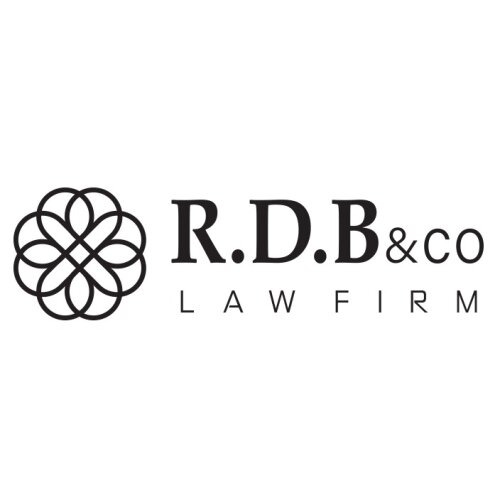Best Retirement Lawyers in Petaẖ Tiqwa
Share your needs with us, get contacted by law firms.
Free. Takes 2 min.
List of the best lawyers in Petaẖ Tiqwa, Israel
About Retirement Law in Petaẖ Tiqwa, Israel
Retirement law in Petaẖ Tiqwa, Israel, encompasses various regulations and policies that govern retirement age, pension plans, retirement benefits, and the rights of retirees. The local laws are designed to ensure that retired individuals receive adequate financial support and protections. The Israeli retirement system includes both public pensions provided by the National Insurance Institute (NII) and private pension schemes. Understanding these laws and how they apply specifically in Petaẖ Tiqwa can help retirees navigate their post-employment years more effectively.
Why You May Need a Lawyer
There are several situations where individuals may require legal help regarding retirement in Petaẖ Tiqwa:
- Claiming Pension Benefits: Ensuring that you receive the correct amount of pension benefits can be complex. A lawyer can help navigate the bureaucracy.
- Pension Disputes: If there is a dispute with your employer or the pension fund, legal advice can be crucial.
- Estate Planning: Proper legal guidance can help in planning the distribution of retirement benefits in your will or trust.
- Early Retirement: Understanding the implications and legality of opting for early retirement.
- Taxation Issues: Legal advice can help in minimizing tax liabilities on retirement income.
Local Laws Overview
The key aspects of local laws relevant to retirement in Petaẖ Tiqwa, Israel include:
- Mandatory Pension Law: All employers must contribute to their employees' pension plans.
- Retirement Age: The current retirement age is 67 for men and 62 for women, with gradual increments planned.
- National Insurance: The National Insurance Institute provides a public pension to eligible retirees.
- Supplementary Pension Funds: Many people also contribute to private pension funds to supplement their income.
- Tax Benefits: Various tax incentives exist to encourage saving for retirement.
Frequently Asked Questions
What is the current retirement age in Israel?
As of now, the retirement age is 67 for men and 62 for women, although there are plans to gradually increase the retirement age for women.
How do I claim my retirement pension?
You can apply for your pension through the National Insurance Institute (NII) or your private pension fund provider. Ensure you have all necessary documentation.
Can I work after I retire?
Yes, you can work after you retire, but it may influence the amount of pension you receive, especially if you are drawing from the National Insurance Institute.
What are my rights if I want to retire early?
Early retirement is possible, but it may result in reduced pension benefits. Consulting a lawyer can help you understand the implications.
How are retirement benefits taxed?
Retirement benefits are subject to income tax, but there are various exemptions and deductions available.
What happens to my pension if I pass away?
If you pass away, your pension benefits may be transferred to your beneficiaries, depending on the pension plan's terms.
What should I do if there is a dispute with my pension fund?
Contact a lawyer specializing in retirement law to help resolve the dispute.
Are there specific pension plans for different professions?
Yes, there are different pension plans for various professions, especially in the public sector.
What are the benefits of consulting a lawyer for retirement planning?
A lawyer can provide personalized advice, help you understand complex legalities, and ensure all your documents are in order.
How can I choose the best pension fund?
Consulting financial advisors or lawyers can help you compare different pension funds based on their fees, performance, and benefits.
Additional Resources
Here are some resources that can be helpful:
- National Insurance Institute (NII): Provides information on public pensions and social security benefits.
- Ministry of Finance - Capital Market, Insurance, and Savings Authority: Offers guidelines on pension savings.
- Association of Pension Fund Members: Non-profit organization that offers assistance with pension-related issues.
- Elderly Rights Organizations: Various NGOs provide support and legal advice to retirees.
Next Steps
If you need legal assistance in retirement, consider the following steps:
- Consult a Lawyer: Seek a professional who specializes in retirement law to discuss your specific situation.
- Gather Documentation: Make sure you have all necessary documents related to your employment, pension plans, and financial records.
- Understand Your Rights: Educate yourself about your legal rights and the local laws regarding retirement.
- Stay Informed: Keep up-to-date with any changes in retirement laws that may affect you.
- Plan Ahead: Early planning can ensure a smoother transition into retirement with fewer legal complications.
Lawzana helps you find the best lawyers and law firms in Petaẖ Tiqwa through a curated and pre-screened list of qualified legal professionals. Our platform offers rankings and detailed profiles of attorneys and law firms, allowing you to compare based on practice areas, including Retirement, experience, and client feedback.
Each profile includes a description of the firm's areas of practice, client reviews, team members and partners, year of establishment, spoken languages, office locations, contact information, social media presence, and any published articles or resources. Most firms on our platform speak English and are experienced in both local and international legal matters.
Get a quote from top-rated law firms in Petaẖ Tiqwa, Israel — quickly, securely, and without unnecessary hassle.
Disclaimer:
The information provided on this page is for general informational purposes only and does not constitute legal advice. While we strive to ensure the accuracy and relevance of the content, legal information may change over time, and interpretations of the law can vary. You should always consult with a qualified legal professional for advice specific to your situation.
We disclaim all liability for actions taken or not taken based on the content of this page. If you believe any information is incorrect or outdated, please contact us, and we will review and update it where appropriate.











